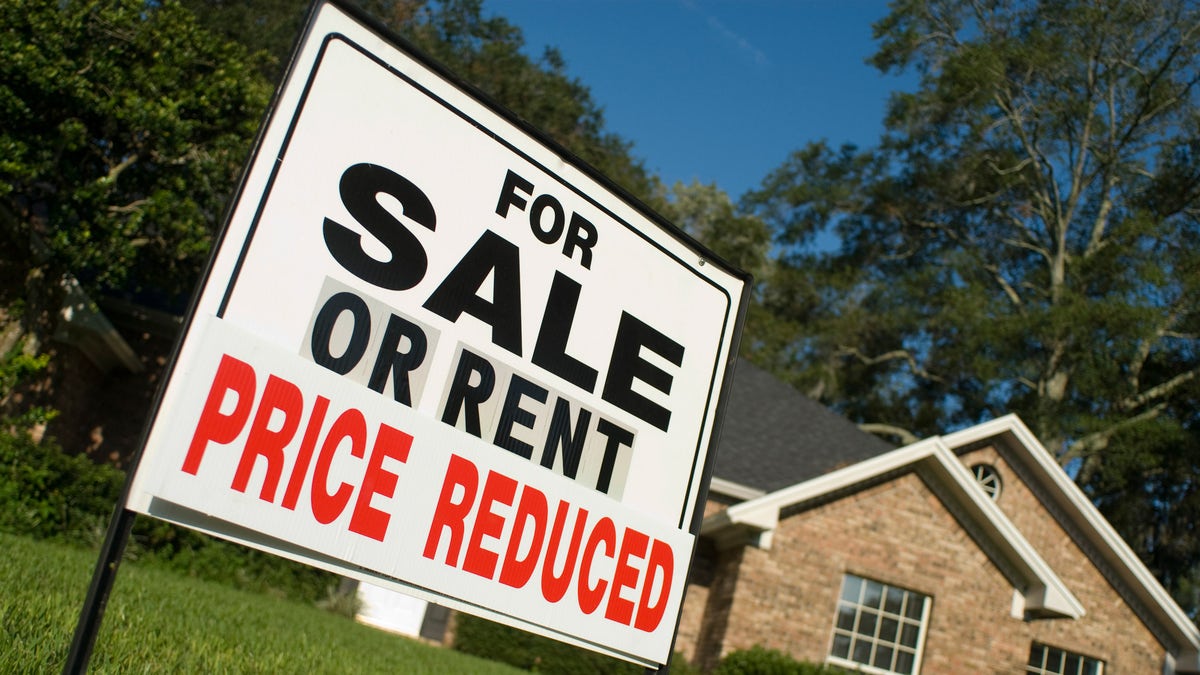
For sale or rent (Kirby Hamilton)
Last year my landlord came to me with an interesting proposition: Did I want to buy the rental home I was living in?
My first thought: "Yes! Then I won't have to move ever again!" But then my folks reminded me that you don't make a major financial investment simply because you hate packing. (Way to burst my bubble wrap, Mom and Dad!)
I had to consider this like an adult.
I looked at everything I knew about the house and the neighborhood. I evaluated my landlord's offer and asked myself if this was a deal I couldn't afford to pass up. I took a deep dive into my psyche. And in the end, I decided against buying.
So if you find yourself in a similar position, you need run through the pros and cons. Take our handy (and fun!) quiz to determine what makes sense for you. Enjoy!
1. Have you actually looked at other places?
If yes: You're in a good place to make a smart decision either way.
If no: Do not even think about buying this place. Got that?
When you've been living in one place for a while, it can be easy to develop tunnel vision. You're used to it, and it's a nice place to live. Fair enough. But you can't be sure it's a nice place to own unless you've seen other places, too.
If you've seen (and we mean physically toured) three or more homes in your price range that you like better, it might be a sign to pass on buying your rental.
It was one of the ways Phil Buckley knew he and his wife were making the right choice when they bought their rental from their landlord.
"We did look at a couple of homes immediately after the owner had inquired about our interest in buying the house," says Buckley, author of " Change With Confidence." "Quickly, we realized that we really appreciated the good parts of our current home."
2. Are you getting first dibs?
If yes: Helpful, but not a deal-maker.
If no: You're not getting much of an advantage.
"If you have a good relationship with your landlord, you could be among the first to know that the property is for sale," says Eric Chen, associate professor of business administration at the University of Saint Joseph in West Hartford, CT.
In a hot market, this could be very tempting: You won't have to compete with other buyers. You won't have to worry about bidding wars. It's a definite plus, but it shouldn't outweigh all other considerations. You should still be willing to get a Realtor to help you sort the details, compare prices on other homes in your area, and do basically everything else any buyer would do.
3. Run the numbers -- are you getting an objectively good deal?
If yes: Yes!
If no: Don't do it!
Your landlord might be willing to throw you a discount because he likes you and because you're saving him the expense and agony of putting the house on the market. But take the lesson we've learned time and time again at the clearance table of any department store: A discount does not always mean a good deal.
However, if you've compared similar homes in the area and know the price is at least fair, that's a big plus.
And it isn't that uncommon.
"We got a better deal this way," Buckley says. "The owner offered to discount the price by half the commission that a real estate agent would have charged, which was an excellent relationship benefit."
4. Have you lived in your rental long enough to know all its problems?
If yes: If you decide to buy, you can do so with confidence.
If no: You're not getting much of an advantage.
If you've lived in your rental for a year or more, you have one big advantage over the average home shopper: "You know a lot of the property. You know the good, the bad, and the ugly," Chen says. "If the good outweighs the bad, purchasing the home isn't a bad idea. It's better than walking into a situation full of hidden land mines."
5. Do you love the neighborhood?
If yes: Your home could be a strong contender.
If no: Start looking for another place to live, pronto.
Renters have a key advantage over typical buyers: They know the hood.
"We had built up goodwill from living in the neighborhood -- like neighbor friendships and retail relationships that we would have lost if we moved out of the area," Buckley says.
If you love your neighbors, your dry cleaner, the streets you walk your dog on, and the deli around the block, it would be hard to give them up. But more important, you know what you're getting. You can skip the frantic internet searches for "walkability," the driving around the neighborhood at night, and the worry about what surprises the neighborhood may have in store.
6. Is your landlord easy to work with?
If yes: This isn't a reason to buy, but it can definitely smooth the process.
If no: Proceed with extreme caution.
We've all heard horror stories of buyers and sellers sabotaging a sale -- whether they intended to or not. If you know your landlord is the type of person who gracefully does what he can to get business done, that's a huge selling point.
"Knowing the landlord greatly helped the ownership transfer process," Buckley says. "Tactical details such as timing and removal of property went smoothly, and each party was motivated and keen to be as flexible as possible."
-- -- -- -- --
More from realtor.com: 4 Foolproof Ways to Spot the Perfect Starter Home